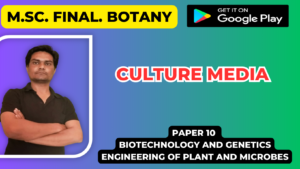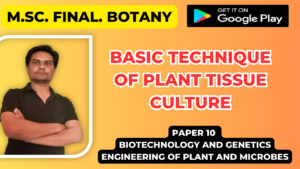![]()
Types of culture
There are different types of plant tissue culture techniques mainly based on the explant used.

Callus Culture
- This involves the culture of differentiated tissue from explant which differentiates in vitro to form callus.
Organ Culture
- Culture of isolated plant organs is referred to as organ culture.
- The organ used may be embryo, seed, root, endosperm, anther, ovary, ovule, meristem, (Shoot tip) or nucellus.
- The organ culture may be organized or unorganized.
- Organized organ culture-
- When a well organized structure of a plant (seed, embryo) is used in culture, it is referred to as organized culture.
- In this type of culture the characteristic of individual organ structure is maintained and the progeny formed is similar in structure as that of the original organ.
- Unorganized organ culture
- This involves the isolation of cell or tissue of a part of the organ, and their culture in vitro.
- Unorganized culture results in the formation of callus.
- The callus can be dispersed into aggregates of cells and/or single cells to give a suspension culture.
Cell culture
- The culture of isolated individual cells obtained from an explant tissue or callus is regarded as cell culture.
- These cultures are carried out in dispensation medium and are referred to as cell suspension cultures.
Protoplast culture
- Plant protoplasts (i.e. cell devoid of cell walls) are also used in the laboratory for culture.



